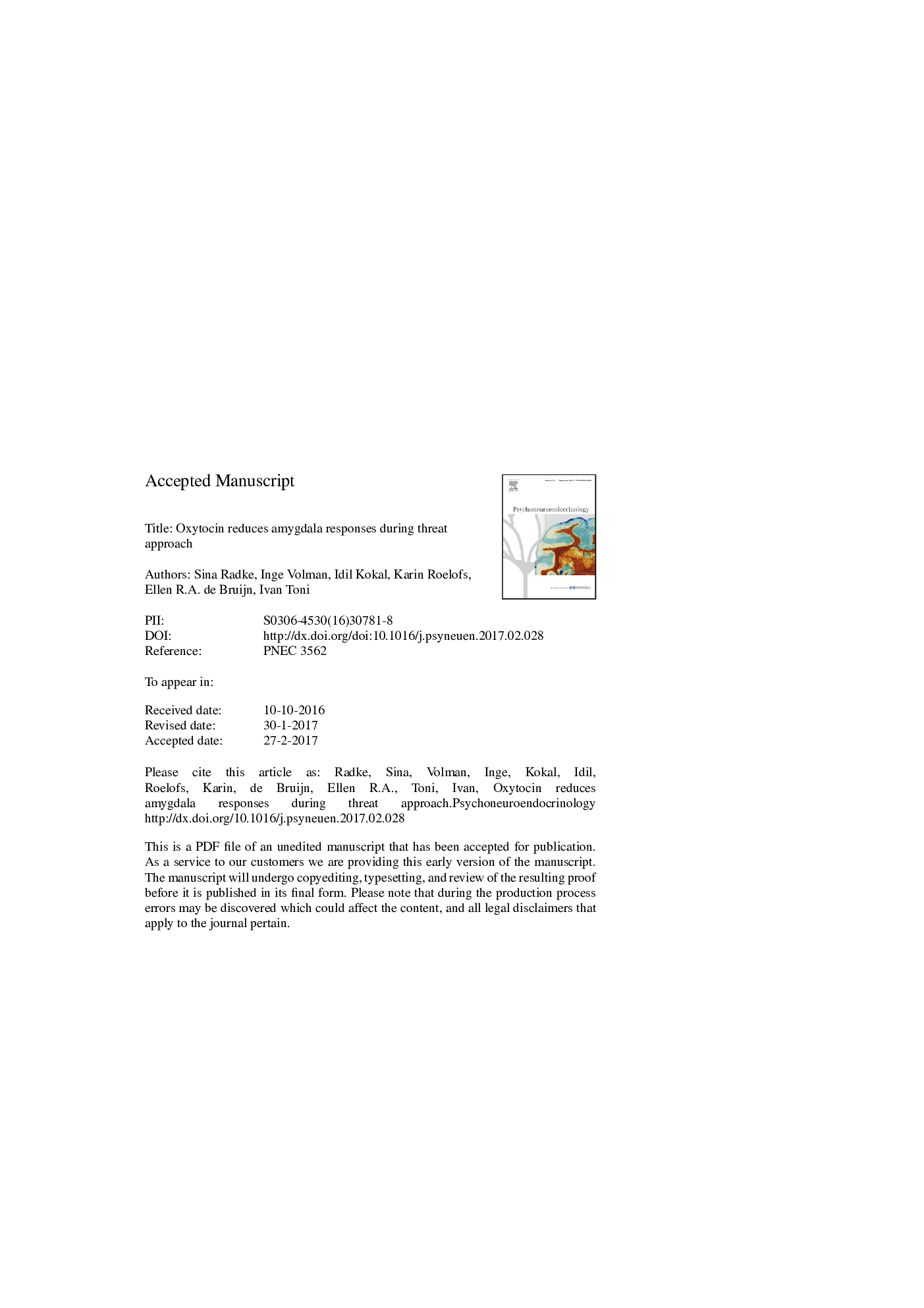| Article ID | Journal | Published Year | Pages | File Type |
|---|---|---|---|---|
| 4934522 | Psychoneuroendocrinology | 2017 | 26 Pages |
Abstract
Oxytocin reduces amygdala responses to threatening social stimuli in males and has been suggested to facilitate approach-related processing by either decreasing anxiety or intensifying salience. The current administration study tested whether oxytocin either reduces or enhances amygdala responses during threat approach in a placebo-controlled randomized, double-blind, between-subjects design with 52 healthy males undergoing fMRI during a social approach-avoidance task. Oxytocin decreased amygdala activation during threat approach and not during threat avoidance. This neural effect supports oxytocin's social anxiolytic effects and provides a neuroendocrine mechanism promoting social approach. The findings may yield clinical implications for individuals suffering from dysregulations of social approach such as patients with anxiety disorders.
Related Topics
Life Sciences
Biochemistry, Genetics and Molecular Biology
Endocrinology
Authors
Sina Radke, Inge Volman, Idil Kokal, Karin Roelofs, Ellen R.A. de Bruijn, Ivan Toni,
